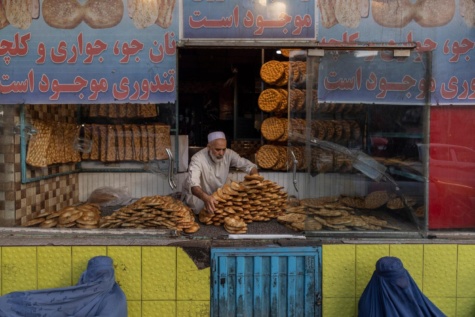
Sophie Echternach | Writer
September 17, 2021
In the last few months, Afghanistan has experienced immense suffering. Beginning in August, the Taliban rose to power, conquering the capital city of Kabul and ousting the US-backed president and government. Left without leadership, many Afghans fear what will follow as a result of the Taliban’s ruthless rule.
Following the over 20 years of conflict between the Taliban and the United States, President Biden deemed it time to withdraw from the endless war, removing all U.S. troops from Afghanistan. Almost immediately, the Taliban moved throughout the country, taking over one city at a time, beginning with Kabul. With the Taliban’s dark history in Afghanistan, those left behind are concerned that women’s rights will be taken away once again, and many fear for their lives due to the brutality of the militant group.
As a result of the humanitarian crisis, Afghans are suffering from more than just fear. About one third of Afghans do not know when they will have their next meal.
“We need to send people to Afghanistan to help teach them how to adapt agriculture to meet the needs of their accessible land. If they [farmers] are given the proper knowledge and resources they can grow more foods to sustainably feed the country,” SCHS alumni Paige Campbell said, after being asked about what America could do to help Afghanistan recover from their food crisis.
By winter, millions of Afghans may be left without food, putting over one million children at risk of dying from malnourishment and starvation. As a result, this crisis has become a call to action for many who wonder how they can help Afghanistan in its “most perilous hour.”
“The U.S. should help fund a renewal program for Afghanistan so that they have the means to conduct the agricultural improvements they want to make,” junior Tessa Campbell said, expressing her thoughts on the issue.
While agricultural improvements may very well help Afghanistan in times of famine, people are still searching for a more immediate and effective solution to avoid what could very well be a tragic winter. With so many people—including children—at risk of starvation, it is more imperative than ever to make donations and support the innocent Afghan civilians in any way possible.
Below are multiple GoFundMe Links for anyone who is interested in sending monetary aid to the people of Afghanistan.

Leave a Reply